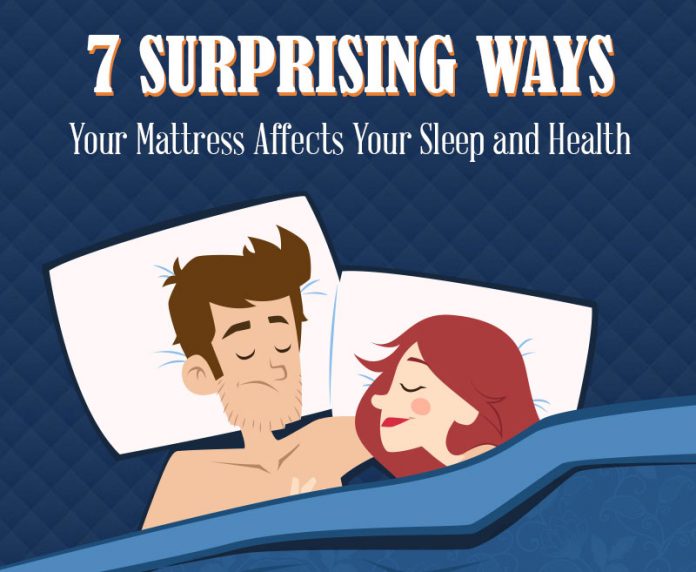While sleep is one of the most important factors influencing your health, the mattress you sleep on is one of the most important factors influencing your sleep.
In other words, your mattress indirectly has a significant effect on your overall health. Let’s understand this better below.
Stress
It can be hard to handle your stress levels if you aren’t getting quality sleep. On the other hand, however, studies suggest that a good night’s sleep can be great when it comes to dealing with stress.
The thing with mattresses, however, is that the quality of sleep they offer steadily deteriorates as they get older. And it’s precisely for this reason it’s recommended to replace your mattress when it gets older than 8 years, especially if you’re finding it difficult to find relief from your stress.
Allergies
If you think a mattress can’t lead to allergies, think again. Old mattresses can have millions of dust mites that are associated with different types of allergies.
In fact, sleeping on a poor, old mattress is considered to be one of the major reasons for as many as 20 million Americans ending up with some kind of allergy every year.
While period cleaning of your mattress might help if the recommendation of the Better Sleep Council is anything to go by, it may not be much helpful with mattresses that have got too old.
While we are at that let us tell you that you shouldn’t forget buying a mattress protector when buying a new mattress.
Back Pain Issues
It’s common for people to experience serious back pain even after getting enough sleep. This is often due to sleeping on bad mattresses, including new ones that don’t offer enough support.
This is the reason it’s recommended to avoid mattresses like an ultra-plush mattress, which might seem very comfortable at first but can wreak havoc on your back as you sleep on it every day.
Perpetual Fatigue
If you’re feeling fatigued even after sleeping for 8 hours every night, something is probably wrong with the mattress you’re sleeping on.
As we said above, older mattresses tend to offer a much lower quality of sleep, which can easily lead to a feeling of fatigue even after sleeping enough.
Body Ache
Older mattresses also go through a lot of wear and tear. This is often evident by the lumps forming on them.
They might seem harmless, but they can lead to issues like body aches and difficulty in sleeping over a period of time.
Back and Neck issues
Another issue with your mattress which might seem harmless is damaged springs. The springs should be functioning the way they are supposed to order to make sure your neck and pain are getting enough support.
Damaged springs mean you may end up experiencing pain in your neck and back.
If you hear a creaking sound when tossing and turning in your mattress, there’s a good chance your mattress’ springs are no longer functioning the way they should.
Insomnia
Insomnia is not an issue restricted to your mattress alone, but about 90% people feel their mattress play a huge role in determining the quality of their sleep.
So it’s easy to tell that a poor mattress may turn out to be one of the biggest triggers for insomnia too.

